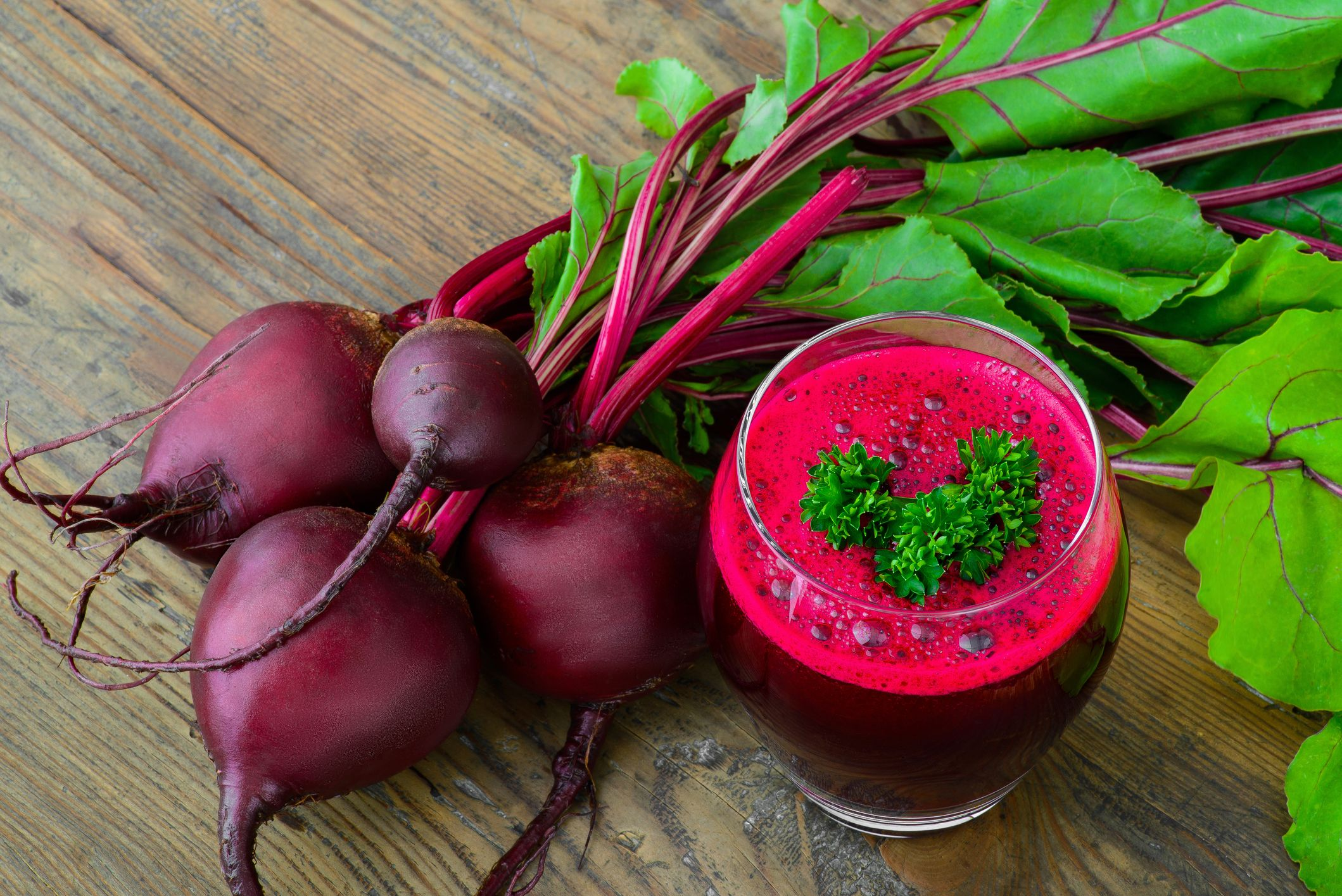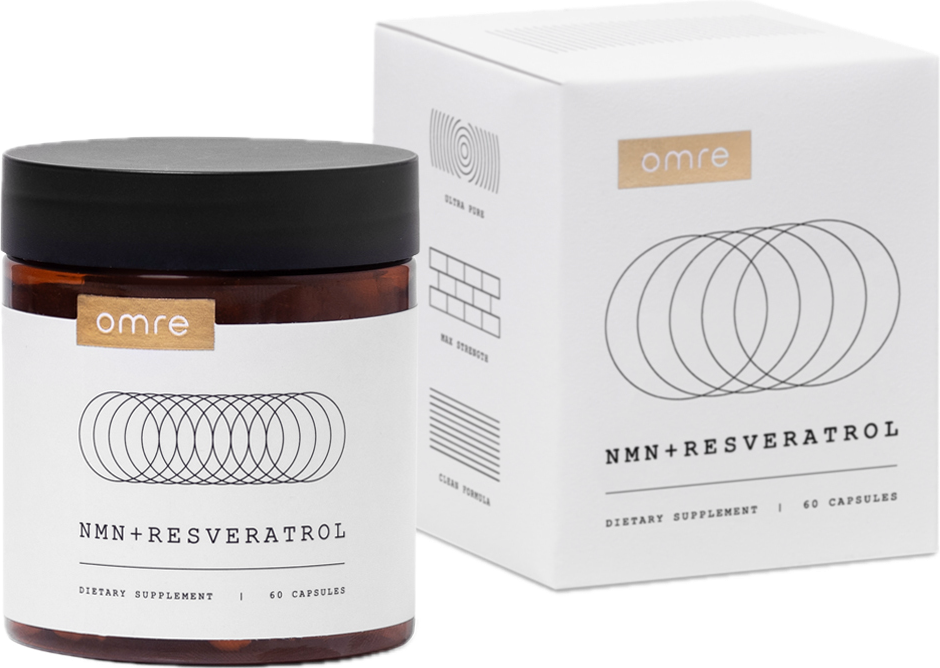Table of Contents
- What Are TMG Supplements?
- How Does Trimethylglycine (TMG) Function in the Body?
- Top Potential Health Benefits of TMG Supplements
- Are There Any Side Effects of TMG Supplementation?
- Who Should Consider Taking TMG Supplements?
- Dosage of TMG Supplements
- How to Choose a High-Quality TMG Supplement?
- How to increase TMG intake naturally
- A Holistic Approach to Better Longevity
- Conclusion
- FAQs
If you are curious about improving your health and supporting your body's natural processes, TMG supplements might have caught your attention.
For trimethylglycine, TMG is a naturally occurring compound often linked to better cellular function, methylation support, and even improved mood.
But what is it, and why are so many people talking about it?
This article covers everything you need to know about TMG supplements—their benefits, how to use them, and safety considerations.
Whether you are exploring new ways to boost your wellness routine or want to learn the facts, we have you covered.
NMN + Resveratrol
Cellular NAD+ booster with ultra‑pure NMN and Resveratrol, at research‑backed doses.*
What Are TMG Supplements?
 TMG supplements, short for trimethylglycine, are dietary supplements derived from a naturally occurring compound in foods like beets, spinach, and quinoa. They are commonly used to support methylation, a process critical for DNA repair, energy production, and liver health.
TMG supplements, short for trimethylglycine, are dietary supplements derived from a naturally occurring compound in foods like beets, spinach, and quinoa. They are commonly used to support methylation, a process critical for DNA repair, energy production, and liver health.
Some studies suggest that TMG plays a role in maintaining heart health by helping to regulate homocysteine levels, a marker linked to cardiovascular risk (1).
Trimethylglycine works by donating methyl groups, which are essential for several biochemical processes in the body. This function has drawn research interest, particularly its potential to support liver function and reduce elevated homocysteine levels.
If you are considering TMG supplements, starting with small doses and consulting a healthcare professional is an excellent approach to ensure they align with your health needs.
How Does Trimethylglycine (TMG) Function in the Body?
Trimethylglycine (TMG) serves as a methyl donor, playing a vital role in DNA repair, energy production, and the breakdown of homocysteine—an amino acid linked to cardiovascular risks when elevated.
Through methylation, TMG converts homocysteine into methionine, potentially supporting heart health by lowering homocysteine levels. Individual outcomes may vary based on genetics and nutrient status (2, 3).
TMG also aids liver function by supporting fat metabolism and detoxification, with studies suggesting it may protect liver cells from oxidative stress (4).
While found in foods like beets and spinach, supplementation provides targeted benefits.
Top Potential Health Benefits of TMG Supplements
 TMG supplements have gained attention for their potential to support various aspects of health, from heart function to cellular energy. While research is ongoing, several benefits are worth exploring based on current studies and insights.
TMG supplements have gained attention for their potential to support various aspects of health, from heart function to cellular energy. While research is ongoing, several benefits are worth exploring based on current studies and insights.
May Lower Homocysteine Levels for Better Heart Health
TMG supplements might be beneficial for heart health, particularly in managing homocysteine levels. High homocysteine has been linked to an increased risk of heart disease, and some research suggests TMG could help by converting it into methionine, another compound your body uses.
For example, a study found that taking up to 4 grams of TMG daily reduced homocysteine levels without affecting other markers like blood pressure or triglycerides (5).
However, other studies have shown that TMG might slightly increase total and LDL (bad) cholesterol, which are also risk factors for heart disease (6).
While TMG shows promise, there is still more to learn about its overall impact on heart health. If you are considering supplements, discussing them with your doctor is always best.
Could Help Boost Athletic Performance
TMG supplements are gaining attention because of their potential to support athletic performance.
A study involving 29 soccer players showed promising results. Participants who took 2 grams of TMG daily for 14 weeks experienced improvements in muscle strength, sprint speed, and overall performance (7).
While the exact reasons behind these benefits are not fully understood, researchers believe TMG might help by reducing fatigue and supporting energy production in muscles (8).
That said, research is still mixed, and more studies are needed to confirm these findings.
May Support Insulin Sensitivity
TMG supplements might help improve insulin resistance, a condition where the body struggles to manage blood sugar effectively (9).
A 2017 study involving nearly 2,400 people found that higher intakes of choline and betaine (a compound related to TMG) were linked to lower levels of insulin resistance (10).
Could Help Alleviate Depression Symptoms
TMG supplements might play a role in easing depression, especially when paired with certain treatments.
A study with 64 participants found that combining TMG with S-adenosyl-methionine (SAMe), a common treatment for mild to moderate depression, improved symptoms more than using SAMe alone over 12 months (11).
This connection might be due to TMG’s ability to lower homocysteine levels, which are sometimes linked to depression and anxiety (12).
Are There Any Side Effects of TMG Supplementation?
When recommended, TMG supplementation is generally considered safe for most people, but some individuals may experience mild side effects such as:
Diarrhea: Loose stools are common, especially at higher doses.
Indigestion: A burning or discomfort in the upper abdomen may occur.
Bloating: Excess gas can lead to a swollen or tight feeling in the stomach.
Cramps: Some people experience stomach or intestinal spasms.
Nausea: A queasy feeling is another potential side effect.
Vomiting: Rarely, some individuals may vomit after taking TMG.
In very rare cases, TMG could increase methionine levels in the blood, potentially causing fluid build-up around the brain (13). If you experience any of these side effects, stop using TMG and consult a doctor.
Due to limited safety research, TMG is not recommended for children, pregnant women, or those nursing. Another point to consider is that high doses of TMG could occasionally lead to increased heart rate or restlessness in sensitive individuals, although this is rare.
Monitoring how your body responds to supplementation and adjusting if needed is always a good idea.
If you are pregnant, breastfeeding, or managing specific health conditions, it is best to consult with a healthcare provider before starting TMG.
While the supplement has shown promise in several areas, personalized advice ensures its use aligns with your unique health needs.
Who Should Consider Taking TMG Supplements?
TMG supplements may be a good option for individuals looking to support methylation, heart health, or overall cellular function. However, before starting any supplement, discussing your goals and current health status with a healthcare provider is always a good idea to ensure it is the right fit for you.
People with elevated homocysteine levels: TMG can support the conversion of homocysteine into methionine, which may help maintain heart health when paired with adequate B vitamins.
For those seeking liver support, its role in promoting fat metabolism and assisting in detoxification makes TMG worth considering for liver health.
Individuals with low energy or fatigue: TMG contributes to methylation, a process essential for energy production at the cellular level.
Athletes and active individuals: Some research suggests TMG may improve endurance and recovery due to its potential effects on cellular hydration and energy (14).
People exploring mood support: TMG could benefit mood balance by aiding neurotransmitter synthesis through methylation (15).
Dosage of TMG Supplements
TMG supplements have no set dosage, but most products offer between 750 and 3,000 milligrams (mg) per serving.
Studies show it is generally safe to take up to 20 grams a day (16), though most research in humans has used doses ranging from 500 to 9,000 mg daily, often split into smaller doses throughout the day (17).
If you have any health conditions or take medications, it is important to talk to your doctor before starting TMG. Always stick to the directions provided with the supplement.
NMN + Resveratrol
Cellular NAD+ booster with ultra‑pure NMN and Resveratrol, at research‑backed doses.*
How to Choose a High-Quality TMG Supplement?
Choosing a high-quality TMG supplement involves looking at a few key factors to ensure safety and effectiveness. For instance:
Purity and Ingredient Quality
Ensure the supplement contains pure trimethylglycine without unnecessary fillers or additives. Look for products with a simple ingredient list; fewer additives mean a better focus on the active compound.
Many brands provide transparency about their ingredients, and if you have sensitivities, it's a good idea to opt for non-GMO or allergen-free options.
Appropriate Dosage
Check that the supplement provides a dosage aligned with your needs. Most high-quality products will clearly state the amount of TMG per serving, typically between 500 mg and 2,000 mg. Avoid products with extremely high doses unless specifically recommended by a healthcare provider.
Brand Reputation
Choose a brand with a strong reputation for quality and transparency. Established companies with good reviews and a history of producing reliable supplements are usually safer.
Researching customer feedback and ratings can provide valuable insight into the product's consistency and effectiveness.
Third-Party Testing
Look for supplements that third-party laboratories independently test. This ensures the product meets safety and quality standards and confirms that what is listed on the label matches what is in the bottle.
Certifications like NSF or USP can provide added peace of mind about the product's authenticity.
How to increase TMG intake naturally
You can naturally increase your TMG intake by including certain foods in your diet that are rich in this compound. Here are some of the best sources to consider as per the research (14):
- Beets: Beets provide 114–297 mg of TMG per 100 grams, making them a great addition to salads, smoothies, or roasted dishes. However, boiling beets can lower their TMG content.
- Spinach: Spinach contains 600–645 mg of TMG per 100 grams and is loaded with other nutrients. For a nutritious boost, enjoy it raw, sautéed, or in soups.
- Quinoa: This grain offers around 390 mg of TMG per 100 grams. It can be used as a rice substitute or as a base for bowls and salads.
- Shrimp: Shrimp provides about 219 mg of TMG per 100 grams and is also a good source of protein. It pairs well in stir-fries, salads, or as a main dish.
- Wheat Bran and Germ: Wheat bran is a powerhouse with 1,339 mg of TMG per 100 grams, and wheat germ follows closely with 1,241 mg. Both can be added to cereals, smoothies, or baked goods.
- Wheat Bread: Whole wheat bread contains approximately 201 mg of TMG per 100 grams, offering a simple way to incorporate TMG into your meals.
A Holistic Approach to Better Longevity
When it comes to longevity, no single supplement can do it all. True longevity requires a well-rounded approach that targets multiple aspects of health. Combining supplements like NMN and Resveratrol excels at this.
Together, they support cellular repair, improve energy production, and help protect against age-related changes. By forming a solid foundation for healthy aging, these supplements work best with a balanced lifestyle that includes nutrient-rich foods, exercise, and stress management.
If you’re looking for a supplement that delivers real results, OMRE NMN + Resveratrol might be the perfect addition to your routine. With 500mg of NMN and Resveratrol per serving, plus 5mg of BioPerine® for enhanced absorption, this duo works synergistically to optimize cellular health.
It’s designed for those serious about boosting their NAD+ levels and supporting healthy aging—without compromising on quality.
What sets OMRE apart is its commitment to purity and potency. With 98% pure ingredients and no fillers, every capsule provides maximum impact.
Whether you’re aiming to improve energy, protect against age-related changes, or just feel your best, OMRE offers a solution grounded in science and quality.
Conclusion
Achieving better longevity is not about relying on a single solution but embracing a holistic approach that combines effective supplements, a healthy lifestyle, and consistent self-care.
Potent compounds like NMN and Resveratrol can support cellular repair and energy production, but they work best when complemented by balanced nutrition, exercise, quality sleep, and stress management. Together, these elements create a strong foundation for healthy aging.
If you are ready to take the next step toward a healthier, more vibrant future, explore OMRE's longevity collection, designed to support your wellness journey. 
Check availability now and discover how these thoughtfully curated products can fit into your routine.
FAQs
Can TMG supplements help with weight loss?
TMG supplements are not specifically designed for weight loss. However, they may indirectly contribute to overall metabolic health by supporting methylation and cellular energy production. Focusing on a balanced diet and regular exercise is always best for sustainable weight management.
How long does it take to see results from TMG supplementation?
The timeline for noticing effects from TMG supplementation varies from person to person. Some individuals report benefits like improved energy or reduced homocysteine levels within a few weeks, while others may require longer. Consistency and pairing TMG with a healthy lifestyle can help maximize its potential.
Are there natural food sources rich in TMG?
Yes, several foods are naturally rich in TMG. Beets are one of the best sources, along with spinach, quinoa, wheat bran, and certain seafood like salmon and cod. Including these in your diet can boost your TMG intake naturally.
Can TMG supplements be taken with other vitamins?
TMG is often paired with B vitamins, especially folate, B6, and B12, to enhance its ability to regulate homocysteine levels effectively. Always consult a healthcare provider before combining supplements to ensure safety and compatibility.
Is TMG the same as betaine?
Yes, TMG (trimethylglycine) is another name for betaine. It gets its name because it was first discovered in sugar beets, one of its richest natural sources. Both terms refer to the same compound.





